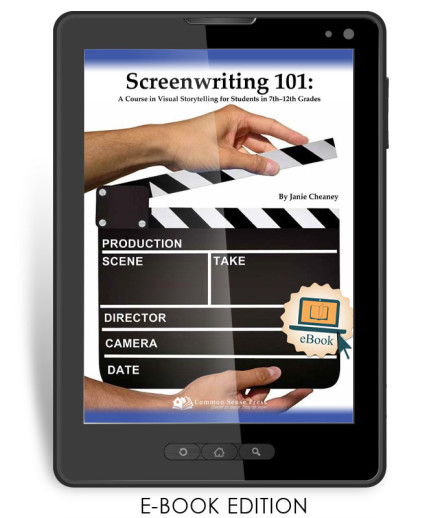We use cookies to make your experience better. To comply with the new e-Privacy directive, we need to ask for your consent to set the cookies. Learn more.
Screenwriting 101 (e-book)
What a fun opportunity for students to learn how to turn a story into a screenplay. Screenplay is the written work for a film, television show, or other moving media, that expresses the movement, actions, and dialogue of a character. Screenplay, or scripts, are the blueprint for the movie. A screenplay is written in a specific format to distinguish between characters, action lines, and dialogue.
A ten-week course where the student will learn how to storyboard, format a screenplay, and think like a director. They will use reading sections of books and follow links to watch how it was made into video. This is a pdf download. There are activities to do but no assessments. ~Amber
e-book edition (not print)
In Screenwriting 101, you will learn how to storyboard, format a screenplay, and think like a director. You will gain experience by working with well-known, beloved stories and movies, such as The Tale of Despereaux, Holes, Peter Rabbit, Star Wars, Toy Story, and The Princess Bride.Fun activities include watching the first motion picture with a story, outlining a silent movie, and playing the role of an old timey film editor, cutting and organizing film strips into a coherent story.
By the end of the ten-week course, you will be using technical film terms such as voice over, close up (CU), extreme close-up (ECU), camera pan, still shot, jump cut, montage, and treatment as you write your very own screenplay.
These materials cover various types of creative writing, including descriptive writing, poetry, journaling, and stories.
These materials provide both writing instruction and assignments forwriting stories.
| Product Format: | Other |
|---|---|
| Brand: | Common Sense Press |
| Grades: | 7-12 |

